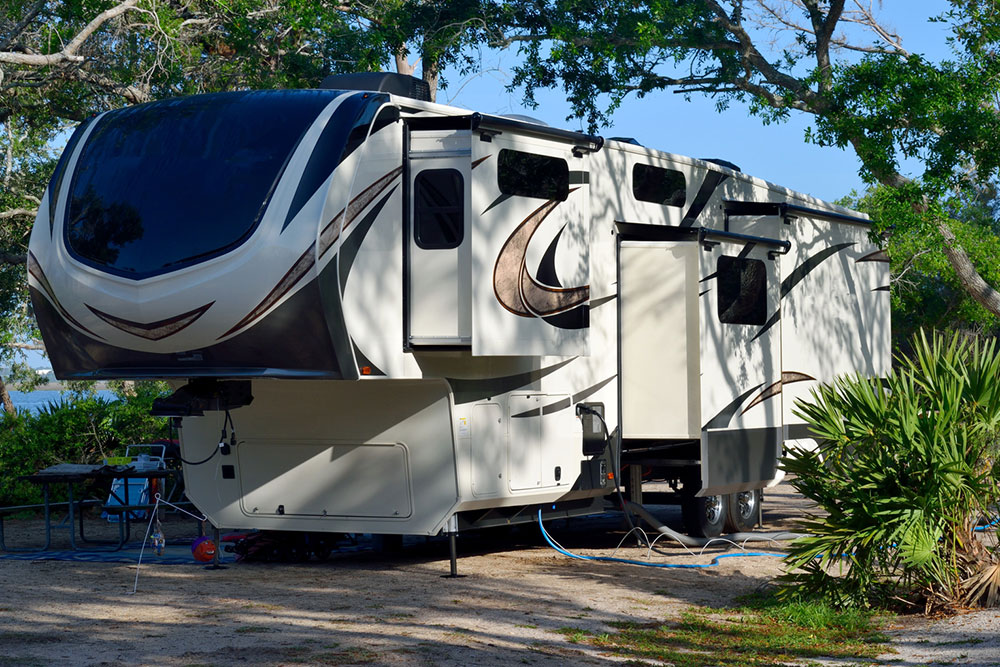Purchasing a Recreational Vehicle (RV) seems like a pretty straightforward and uncomplicated process. Nevertheless, buyers need to be wary of making certain mistakes that would make purchasing and owning an RV tedious in the long run. Some such mistakes include buying the wrong-sized RV, not doing adequate research before buying an RV, or rushing into a purchase. To avoid issues, here are some common mistakes to avoid when shopping for RVs:
1. Ruling out used RVs
Many users make the common mistake of ignoring the used RV market and straightaway purchasing brand-new RVs. This is a mistake because, like all vehicles, RVs tend to depreciate with time. In fact, these vehicles’ depreciation rate is much faster than that of normal cars and vehicles. RVs start rapidly losing their monetary value right after being driven out of the showroom. This is why buying a used RV is a wise course of action, as that will be very reasonably priced. Additionally, a used RV also brings a lot of resale value for owners. Most owners take good care of their previous RVs, making it easier for the vehicle’s next set of owners to use it without hassles.
2. Buying the wrong size
Many buyers tend to equate small-sized RVs with more value for money. This is a mistake because small RVs, predictably, will have less room on the inside. So, the occupants in the vehicle will feel a constant sense of being cramped inside the RV. One must not forget that RVs are meant to be used for enjoyable getaways and vacations. If its occupants are uncomfortable and, by extension, unhappy to be traveling in a cramped vehicle, then that defeats the entire purpose of getting an RV in the first place.
On the other hand, if one buys an RV that is double the size they need, that will simply be more expensive to run and maintain and also difficult to maneuver across densely populated, high-traffic urban zones in which vehicles with high mobility are more valuable than those that have an imposing size.
All in all, one needs to consider what size RV they need, and only then go ahead and put their money down on the same.
3. Not doing enough research
Buyers predictably overlook the research aspect of buying a large vehicle like an RV. Researching well about RVs, the various models available on the market, the engine options and features, the fuel economy of RVs, and other aspects is critical while making such a huge investment. Buyers surely would not want to purchase an RV and, within a few weeks or months, find that the vehicle does not suit their specific travel requirements. In such cases, users will simply be stuck with their vehicle or forced to sell it and incur a significant loss.
4. Not considering the towing weight and capacity
Many first-time RV buyers only check the quality of the interiors, the engine, the cabin’s roominess, the ride and handling, and other aspects that people normally check while buying a car before they eventually buy an RV. However, two main elements, towing capability and storage capacity, are often overlooked.
These two aspects of an RV are just as significant as the other ones specified earlier. Before buyers purchase a travel trailer or a fifth wheel, they must be sure that their vehicle has the towing capacity to haul it around safely. Towing capability and storage capacity are both key if users also want to buy a motorhome and tow their car behind it.
5. Not setting a budget range and limit
This is not just a common mistake people make while buying RVs, but a mistake they make while making any kind of purchase. Researching an RV’s price range before showing up in a showroom to buy it helps people set a fixed budget. Once this budget amount is set, one should not go above and beyond it under any circumstances. Not setting a budget range or limit results in people going out of pocket as soon as they purchase an RV. This leaves such buyers with little to no money for additional expenses, such as vehicular insurance and adding accessories to the RV.
6. Not getting an inspection done
RVs are absolutely monstrous in terms of power and size. This is why a thorough inspection of the vehicle is key before making a huge investment in an RV. Many buyers believe that inspections are a gross waste of money and do not do them. However, hiring a certified inspector for a thorough vehicle evaluation can save people thousands of dollars later. For instance, consider the following scenario: if an individual buys an RV without running an inspection beforehand, they will be left without solutions if the vehicle has a busted engine or gearbox a month after it has been purchased.
One must inspect a vehicle before purchasing an RV to avoid such outcomes and equally awful repair expenses.
7. Doing too many aftermarket modifications
Too many after-market modifications may increase the stylistic appeal of an RV but are very likely to hamper its performance or overall functionality. For instance, if an individual modifies the engine of their RV to make their vehicle more powerful and quicker, they will face issues with the vehicle’s gearbox, tires, and other critical components when they drive their modified vehicle beyond the natural limits it was designed to reach. In such cases, users have overspent on modifications and rendered their RV less capable and effective than it would have been without the after-market modifications in place.
Some of the other common mistakes to avoid when shopping for RVs include picking a poor floor plan, ignoring vehicle insurance while buying an RV, and purchasing the cheapest model available on the market.



